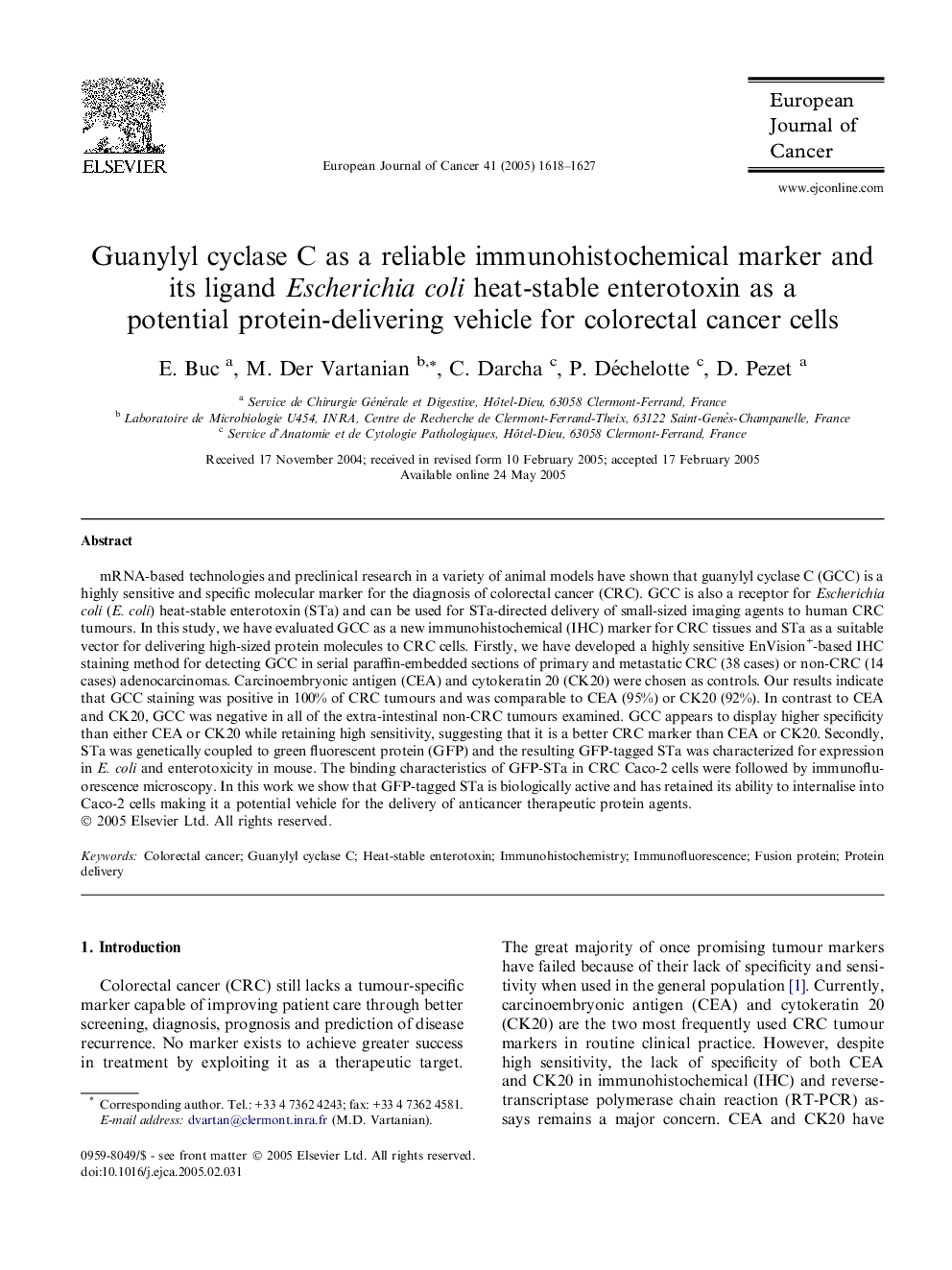| Article ID | Journal | Published Year | Pages | File Type |
|---|---|---|---|---|
| 9905724 | European Journal of Cancer | 2005 | 10 Pages |
Abstract
mRNA-based technologies and preclinical research in a variety of animal models have shown that guanylyl cyclase C (GCC) is a highly sensitive and specific molecular marker for the diagnosis of colorectal cancer (CRC). GCC is also a receptor for Escherichia coli (E. coli) heat-stable enterotoxin (STa) and can be used for STa-directed delivery of small-sized imaging agents to human CRC tumours. In this study, we have evaluated GCC as a new immunohistochemical (IHC) marker for CRC tissues and STa as a suitable vector for delivering high-sized protein molecules to CRC cells. Firstly, we have developed a highly sensitive EnVision+-based IHC staining method for detecting GCC in serial paraffin-embedded sections of primary and metastatic CRC (38 cases) or non-CRC (14 cases) adenocarcinomas. Carcinoembryonic antigen (CEA) and cytokeratin 20 (CK20) were chosen as controls. Our results indicate that GCC staining was positive in 100% of CRC tumours and was comparable to CEA (95%) or CK20 (92%). In contrast to CEA and CK20, GCC was negative in all of the extra-intestinal non-CRC tumours examined. GCC appears to display higher specificity than either CEA or CK20 while retaining high sensitivity, suggesting that it is a better CRC marker than CEA or CK20. Secondly, STa was genetically coupled to green fluorescent protein (GFP) and the resulting GFP-tagged STa was characterized for expression in E. coli and enterotoxicity in mouse. The binding characteristics of GFP-STa in CRC Caco-2 cells were followed by immunofluorescence microscopy. In this work we show that GFP-tagged STa is biologically active and has retained its ability to internalise into Caco-2 cells making it a potential vehicle for the delivery of anticancer therapeutic protein agents.
Keywords
Related Topics
Life Sciences
Biochemistry, Genetics and Molecular Biology
Cancer Research
Authors
E. Buc, M. Der Vartanian, C. Darcha, P. Déchelotte, D. Pezet,
